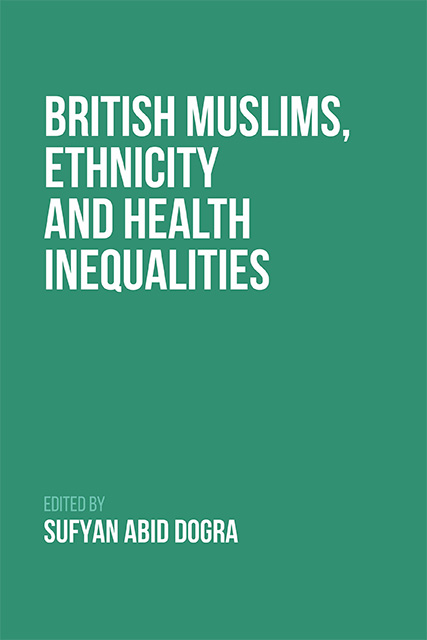11 - ‘Well Done for Coming Because Your Kind Don’t Normally Come to Things Like this’ — Identity Struggles for Second- and Third-Generation British Muslims and Engagement with Health Information: A Reflective Perspective
Published online by Cambridge University Press: 18 October 2023
Summary
Introduction
The way in which a subject is first broached can often determine what message is received. The intention of the messenger and the message itself may become clouded if the choice of words was poor. Healthcare professionals, like everyone else, can sometimes hold pre-judged ideas about certain groups of people. It is very difficult to be completely unbiased despite one’s best intentions. Even in blind randomised controlled trials, there is always an element of bias. You may be able to blind individual participants; however if you are recruiting in a certain hospital in a particular town, for example, you will know certain demographics about local residents which can lead to bias. It is therefore important that bias is managed and does not disproportionately and negatively affect certain communities. The current social and political climate highlights that bias and prejudice can disadvantage people in certain groups from healthcare services all the way through to access to the judicial system. If anything, it creates further disharmony in an already fractured society.
Identities are a complex thing. In a rapidly changing world, it is becoming harder to characterise people with a somewhat outdated set of characteristics. In this chapter, I will draw on some of my own experiences as someone who has a hybrid identity and doesn’t fit in a neat and concise identity box that we often use to characterise people in order to show how this can be problematic when delivering health information or services. The problems are deep-rooted and in a world built around systems, challenges can be presented from both sides of the equation.
The Importance of Narratives in Delivering Effective Health Information and How they Have Been Used
First and foremost, it is important to understand how people use narratives. A number of narratives can be generated which are a function of linguistic form. Not only do they provide a view on what people do and how they do it, but also how they feel about what it is they do. As much as the person telling their story selectively chooses certain dynamics or experiences to emphasise, this is further complicated by the fact that the narrator makes their own decisions as to what is regarded as important or significant.
- Type
- Chapter
- Information
- British Muslims, Ethnicity and Health Inequalities , pp. 241 - 255Publisher: Edinburgh University PressPrint publication year: 2023



